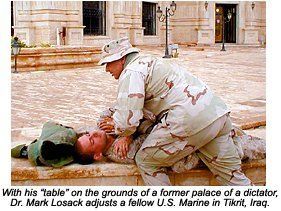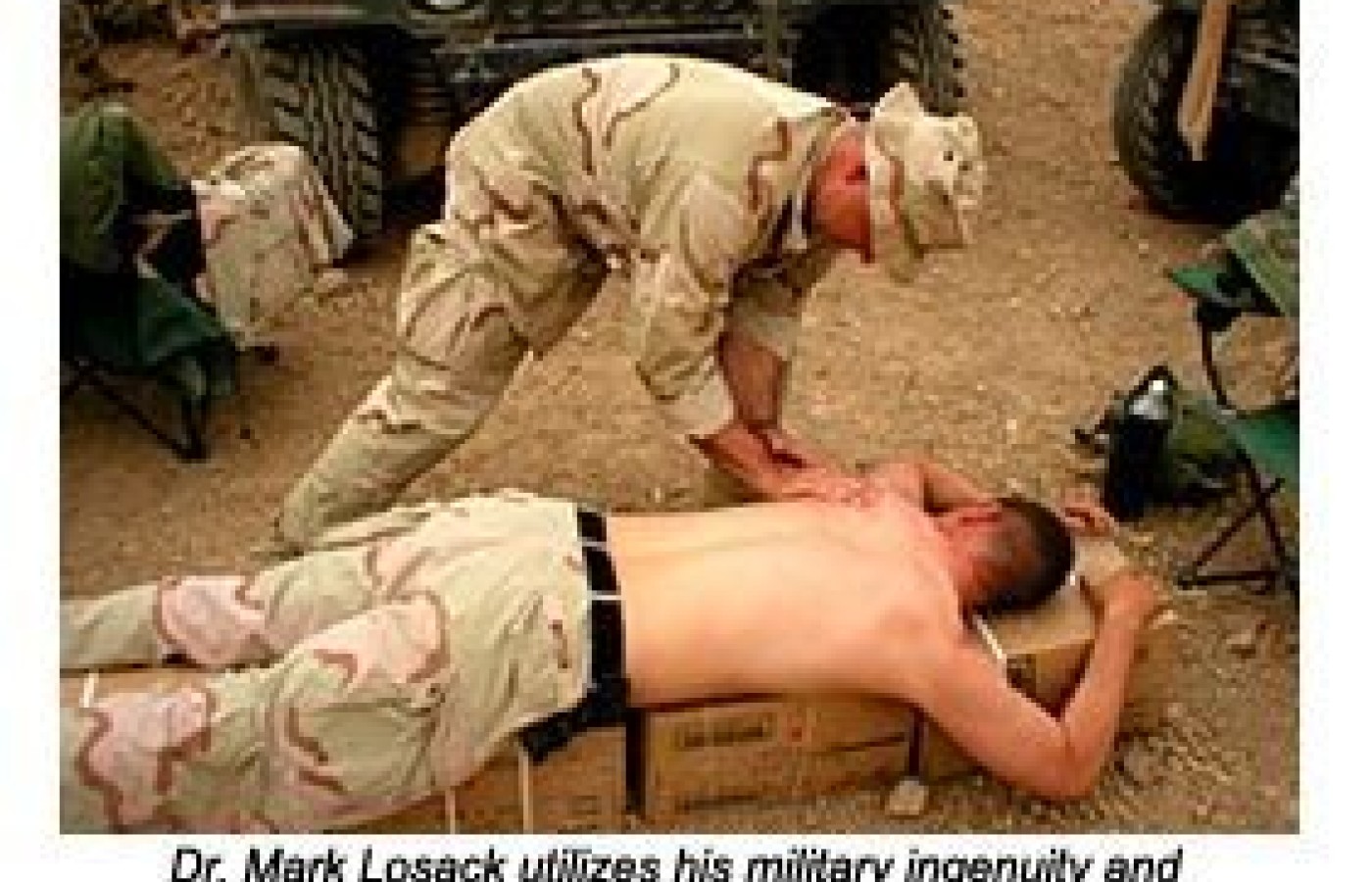It’s a new year and many chiropractors are evaluating what will enhance their respective practices, particularly as it relates to their bottom line. One of the most common questions I get is: “Do I need to be credentialed to bill insurance, and what are the best plans to join?” It’s a loaded question – but one every DC ponders. Whether you're already in-network or pondering whether to join, here's what you need to know.
Chiropractic on the Front Line in Baghdad:

The sun descends on the horizon 10 miles south of Baghdad; a chiropractor wearing protective gear is performing an adjustment on a fellow Marine when gunfire erupts - adjustment over. It is the end of another day for Lieutenant Colonel Mark Losack, DC, stationed with more than 150 fellow troops as part of Operation Iraqi Freedom.
The lt. col. was sent to Iraq for his military experience first and his chiropractic expertise second, although both have been utilized during the conflict. Dr. Losack was called to active duty on Nov. 1, 2002, and deployed to the Persian Gulf region aboard the U.S.S. Boxer (LHD-4), arriving in Kuwait March 1. He was assigned to the Division Forward Combat Operations Center, with Task Force Tripoli, tied in with the 7th Marine Regiment. As a result of his deployment, Dr. Losack has temporarily closed his thriving practice in Oceanside, Calif.
"The Marines knew that I was a DC, and some of them approached me, asking for care," explained Dr. Losack. "Only four of the patients had seen a chiropractor before; the general reaction of the Marines that first day of treatment was 'wow - that was awesome!"
Although Dr. Losack made the change from treating civilians in his practice to those in his unit with relative ease, his first day on the front line was an eventful one: "I hung out my shingle, and before I knew it, I had treated over 25 patients in the first 21-and-a-half hours. I stopped counting at 25. I discovered later that 3-4 MRE ["meals, ready-to-eat"] boxes work well as an adjusting table. Judging from my posture, I would hurt myself doing 50 or more patients per day like this, but it works - 'out here.'
"Those [who] were in the worst condition all reported sleeping better that evening and feeling much better the next day. I taught some soft-tissue techniques to the corpsmen - medics - so that they could do more for the patients than just prescribe OTC [Over the Counter] pain relievers.
"Many of the patients have the chief complaints of headaches and mid- and low-back pain from their ADLs [activities of daily living]. These included lifting multiple five-gallon jugs of water and fuel, MREs, and varied electronic communications equipment and weapons. The older Marines suffer from cumulative trauma disorders, most with accompanying peripheral neuropathies, attributed to years of physically abusing their bodies in the service of their country."
Dr. Losack was adamant about his "patients" commitment to the cause in Baghdad: "Marines here are young, physically active men and women who have an attitude that pain is weakness leaving the body. They are some of the most inspirational people you could ever be around, with a 'can-do' mentality - and a reputation to match it!"
Remembering the night enemy fire interrupted his work, Dr. Losack continued, "One evening, more of the Marines approached me for care - mostly for the aches and pains from prolonged sleeping on the ground; in a Humvee; or from wearing a Kevlar helmet, flak vest and equipment harness. It was getting dark and I was working on the last Marine when we began receiving incoming AK-47 rounds. I'm not sure of the last time an adjustment was performed under those conditions. Anyway, it will make a good story for a long time to come."

Dr. Losack emphasized the most significant difference between adjusting patients in his practice and working "under fire": "No one was shooting at us in Oceanside; but they sure were in Iraq - we even took direct fire from a vehicle!"
Mark Losack made it clear he was a lieutenant colonel taking part in infantry operations; and then a licensed DC treating on the front lines. "I believe chiropractors commissioned in the military have a tremendous opportunity; you know more than you think you do." He also cautioned: "Practice in the military is not for shrinking violets. You have to be able to weigh-in during the decision-making process; and once that decision is made, carry it out on your own."
"The current scope of practice for the military is limited," the lt. col. added. "With the structured chain of command, it's not the place where you can jump on the philosophy soapbox. And unless the current program is expanded, there are only a limited number of slots available. One option, of course, would be the reserves."
As he concluded his transmission from Tikrit, Iraq, on the palace grounds of its deposed leader, Dr. Losack expressed his gratitude to Dr. Reed Phillips, president of his alma mater, Southern California University of Health Sciences (SCUHS): "My sincere thanks to you and the faculty for imparting your knowledge to me. The bureaucrats [who] say we aren't needed in front line units haven't spent much time on the front line. I have; I know."
How much longer would Dr. Losack and the coalition forces remain in the Middle East?
"I haven't got a clue; but if you hear something, let me know."
(Editor's note: Thanks to Drs. Chris MacChesney and Michael Pedigo for their assistance in contacting Dr. Losack.)
Jim Harrison, associate editor



